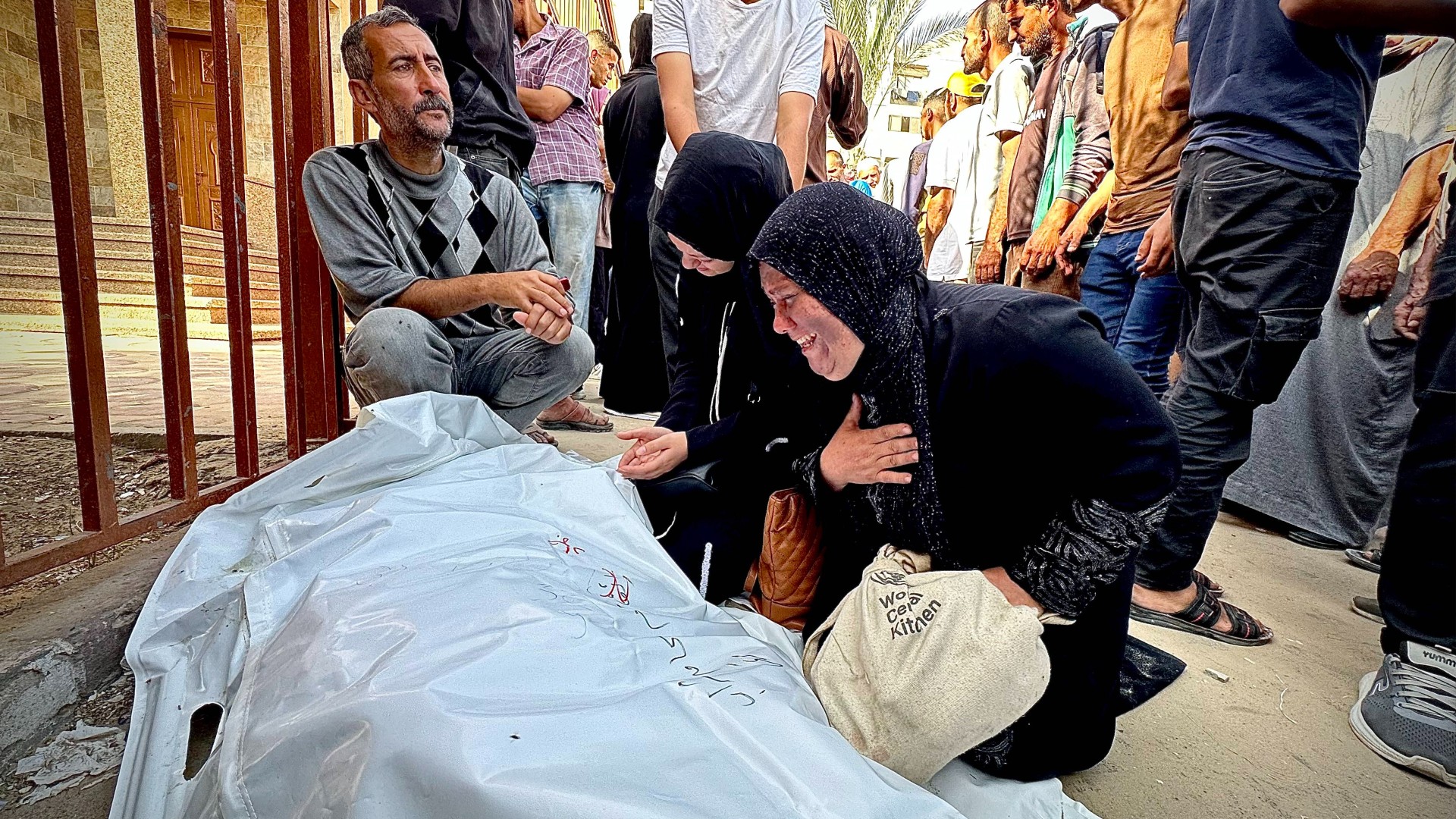Israeli forces kill three starving Palestinians queuing for food raising death toll of aid seekers to 75

Israeli forces shot dead three starving Palestinians at a US-Israeli relief distribution centre in southern Gaza on Monday, raising the number of those killed whilst trying to obtain food to more than 75 people in less than six days.
Gaza's Health Ministry reported that three Palestinians were killed and at least 35 wounded when Israeli forces opened fire near an aid distribution site in Rafah operated by the US and Israeli-backed Gaza Humanitarian Foundation (GHF).
The ministry reported that according to its own tally, at least 75 Palestinians had been killed and more than 400 wounded whilst queuing for food since the GHF launched its operations in Gaza on 27 May.
Monday's killings came hours after Israeli forces mowed down at least 35 Palestinians at two US-Israeli food distribution points in Rafah and central Gaza.
Eyewitnesses and local officials told Middle East Eye that Israeli troops opened fire directly on civilians, with many of the fatalities receiving gunshot wounds to their head or chest.
New MEE newsletter: Jerusalem Dispatch
Sign up to get the latest insights and analysis on Israel-Palestine, alongside Turkey Unpacked and other MEE newsletters
"I was standing among the crowd, but when people started rushing toward the distribution point, I couldn’t move with them because there were hundreds pushing forward," Marwa al-Naouq told MEE on Sunday.
"Then a quadcopter appeared and began firing at them. After that, the Israeli army opened fire directly on the crowd, and American security forces fired tear gas canisters.
"Dozens were killed and injured as people ran in every direction, trying to escape."
Since launching operations last Tuesday, the GHF has claimed - without providing any evidence - to have handed out tens of thousands of food boxes to needy Palestinians - a fraction of what aid agencies say is needed to address the mass starvation unfolding in the strip.
'Corralling desperate families behind fences and placing aid under armed guard violates not only humanitarian principles but common decency'
- Rob Williams, War Child Alliance
The new aid system, which limits food distribution to a small number of hubs guarded by American security contractors, seeks to wrest distribution away from aid groups led by the United Nations.
The UN and other major humanitarian organisations have repeatedly criticised the mechanism, with Doctors Without Borders (MSF) warning that "weaponising aid in this manner may constitute crimes against humanity."
"Today's events have shown once again that this new system of aid delivery is dehumanising, dangerous and severely ineffective," Claire Manera, MSF's emergency coordinator, said in a statement on Sunday.
"It has resulted in deaths and injuries of civilians that could have been prevented. Humanitarian aid must be provided only by humanitarian organisations who have the competence and determination to do it safely and effectively," she added.
'Ugly system'
Rob Williams, the CEO of the rights group War Child Alliance, has also criticised the US and Israeli-backed aid mechanism, saying the scenes in Rafah are a "devastating indictment of a model that should never have existed".
"Corralling desperate families behind fences and placing aid under armed guard violates not only humanitarian principles but common decency," he said.
"The true monstrosity of this ugly system lies the draping of a 'humanitarian' disguise over the military deployment of food as a means of displacing a population," he added.
Since 2 March, Israel has barred all supplies from entering Gaza, including food, water and medicine, in a bid to force Hamas into renegotiating the ceasefire deal agreed in January.
Israel wants the Palestinian group to release the remaining Israeli captives held in Gaza in exchange for humanitarian aid, an extended truce and more Palestinian prisoners held in Israeli jails.
But Hamas has insisted on an Israeli commitment to a permanent ceasefire, saying any "partial deals" will allow Israel to resume the killing in Gaza.
Since reneging on the ceasefire deal, Israeli forces have killed at least 4,000 people in attacks targeting tents, hospitals and school-turned-shelters.
According to Palestinian health and government officials, at least 54,000 Palestinians have been killed by Israeli forces since October 2023, including more than 28,000 women and girls.
The figure also includes at least 1,400 health sector professionals, 280 UN aid workers - the highest staff death toll in UN history - and at least 180 journalists, the highest number of media workers killed in conflict since the Committee to Protect Journalists (CPJ) began recording data in 1992.
In January, the medical journal the Lancet reported that fatalities were probably underreported by 41 percent.
The study estimated that 59.1 percent of those killed were women, children and people over the age of 65. It did not provide an estimate of Palestinian fighters among the dead.
That toll represented 2.9 percent of Gaza's pre-war population, "or approximately one in 35 inhabitants", the study said.
middleeasteye.net